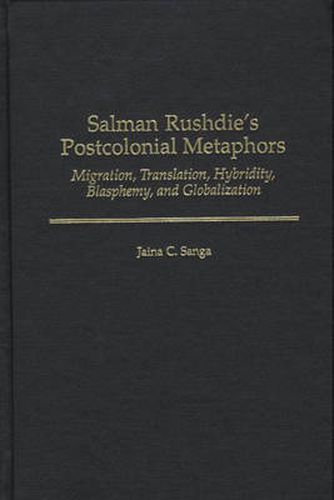Salman Rushdie's Postcolonial Metaphors: Migration, Translation, Hybridity, Blasphemy, and Globalization
Jaina C. Sanga

Salman Rushdie’s Postcolonial Metaphors: Migration, Translation, Hybridity, Blasphemy, and Globalization
Jaina C. Sanga
Metaphors allow us to describe something new in terms of the familiar. The network of Empire building was sustained through a system of metaphors that depicted the coloniser as superior and the indigenous population as primitive and deviant. The metaphors included images like bringing light to dark, barbaric places; journeying to unchartered lands and educating the ignorant natives. This volume shows how Salman Rushdie reworks and reimamgines colonial meatphors in his postcolonial novels. The study looks at five overarching metaphors in Rushdie’s writings: mitgration or the transfer of people and their idealogies; translation , the process of representing someting from one language to another; hybridity , the fusing together of disparate cultural elements; blasphemy , the desecration of sacred beliefs by altering their representation and globalizaton the homogenisation of cultures. By reconstructing these metaphors in his novels Rushdie challenges the established colonial ways of understanding the world, undermines the imperialist power structures and introduces alternative visions of reality.
This item is not currently in-stock. It can be ordered online and is expected to ship in approx 2 weeks
Our stock data is updated periodically, and availability may change throughout the day for in-demand items. Please call the relevant shop for the most current stock information. Prices are subject to change without notice.
Sign in or become a Readings Member to add this title to a wishlist.


